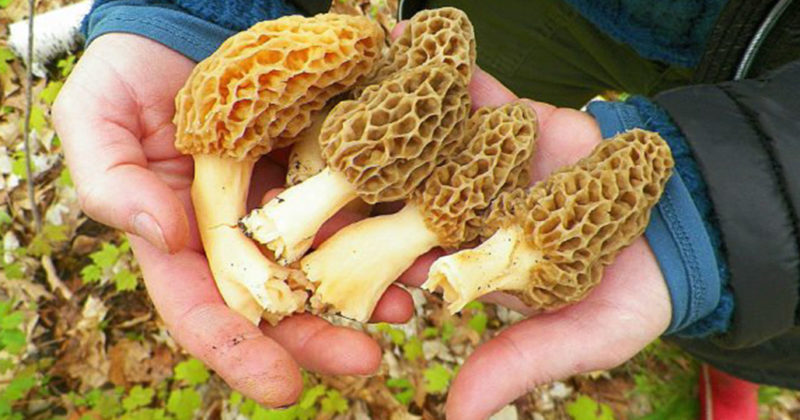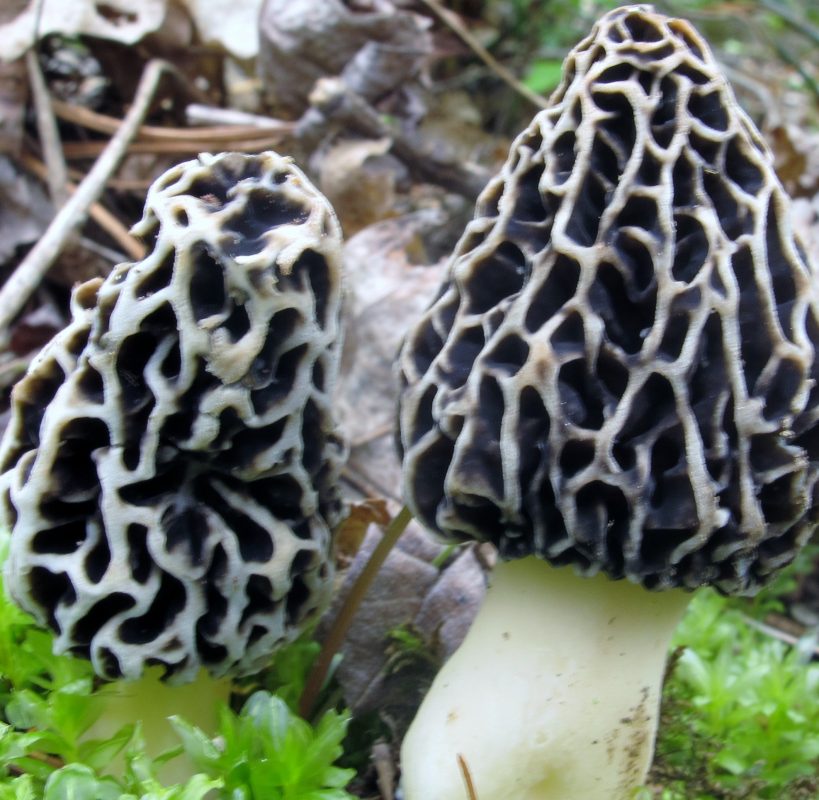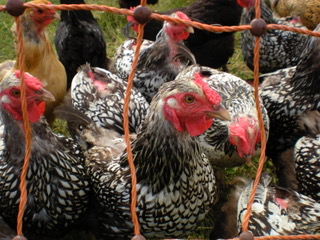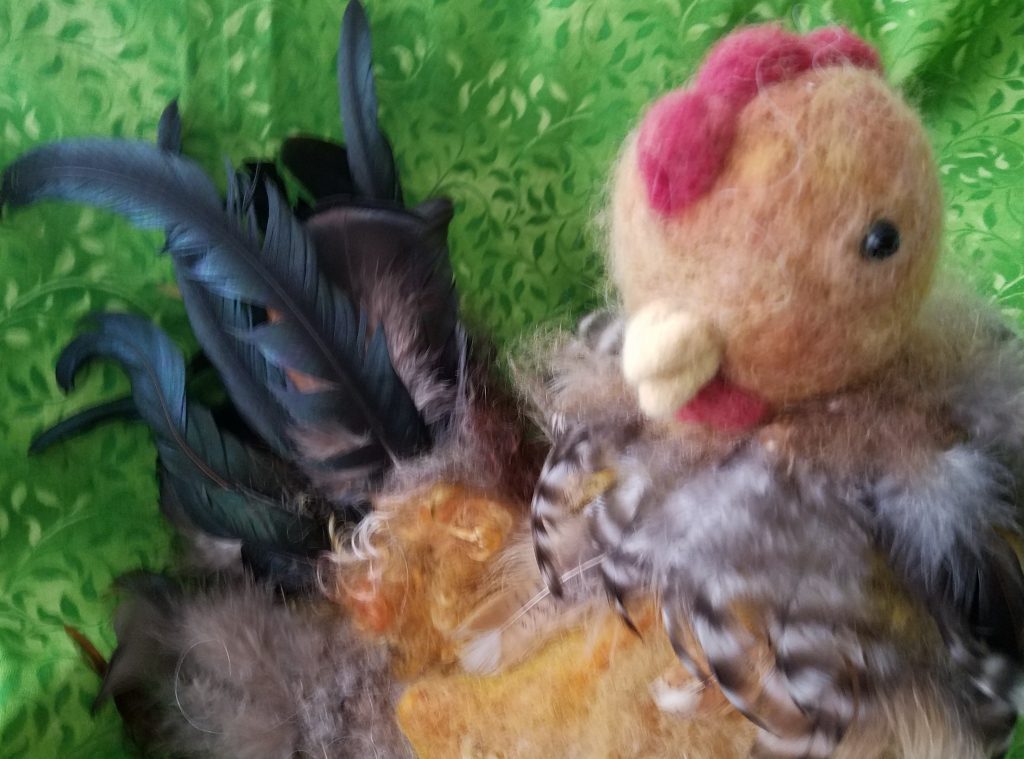May 6, 2018
By seeking and blundering we learn. — Johann Wolfgang von Goethe

Head down, eyes keen, I walk in silence searching for morels. The trickster mushrooms resemble every leaf on the forest floor, hidden from view of those who don’t have their “morel eyes” on. Some people are gifted at finding morels. They emerge from the woods with hands full of them and a triumphant smile, as if they’ve won the jackpot (and, of course, they have!) Finding morels is not easy for me, which makes a bounty of one or a few very gratifying. The morels teach me a lesson about Seeking; if they were easy to find, they wouldn’t hold any more meaning than the container of button mushrooms I can buy at the grocery store. Yes, morels are tasty on a homemade pizza or sauteed in butter, but I believe their real value lies in the Seeking, the process of attuning my gaze to the treasure I long to find. The Seeking makes the Finding all the sweeter. What are you seeking? My sincere hope for you is that you can attune your gaze to find your treasure. Perhaps, like the elusive morel, it’s right in front of you and you simply have yet to recognize it.

Mary O’Connell, Your Living Arts Weekly Editor
The Mushroom Elf
(a teeny tiny poem by Pamela Perkins)
Beneath the cool and dappled green
As perky as perky can be
Two little mushroom elves sit
Beneath a fallen tree.

Social Awareness
A Story about Seeking
A man was going from village to village, from rabbi to rabbi, asking the same question: “Where can I find God?” He was never satisfied with the answers he received, so he would pack his bag and move on to the next village.
Some of the rabbis told him, “Pray, my son, and you’ll find God.” But the man had tried to pray and he could not.
And some replied, “Study, my child, and you shall find God.” But the studies seemed dry and irrelevant. The more he read, the more confused hen became — and the further removed from God he seemed to be.
And some rabbis said, “Forget your quest, my child. God is within you.” But the man had tried to find God within himself, and failed.
One day, the man arrived, weary and discouraged, at a very small village set in the middle of a forest. He went up to a woman who was minding some chickens.

She asked whom he could be looking for in such an isolated place, but she did not seem surprised when he told her he was looking for God. She quickly finished her chores and escorted him to the rabbi’s house.
When he went in, the rabbi was studying. The man waited a moment, but he was impatient to be off to the next village if he could not be satisfied. So, he interrupted: “Rabbi! How do I find God?”
The rabbi paused, and the man wondered which of the many answers he had already heard the rabbi would give. But the rabbi said simply, “You’ve come to the right place, my child. God is in this village. Why don’t you stay for a few days? You might meet God.” The man was puzzled. He did not understand what the rabbi could mean. But the answer was unusual. It intrigued him enough to stay.
For two or three days he explored every corner of the tiny village. He would ask the villagers where God was that day, but they would only smile and invite him to have a meal with them.
Gradually, he got to know them and even helped with some of the village work. Every now and then, by chance, he would see the rabbi, and the rabbi would ask him, “Have you met God yet, my son?” And the man would smile and sometimes he understood, and sometimes he did not understand.
For months he stayed in the village, and then for years. He became part of the village life and shared in all the activities. He went to the synagogue on Friday and prayed with the rest of the community, and sometimes he knew why he prayed and sometimes he did not. And sometimes he really said the prayers and sometimes only the words.
And he would join one of the families for a Friday night meal, and when they talked about God, he was always assured that God was in the village, though no one was quite sure where or when God could be found. Gradually, he, too, began to believe that God was in the village, though he wasn’t quite sure where. He knew, though, that sometimes he had met God.
One day, for the first time, the rabbi sought him out, and said, “You have met God now, have you not?” And the man said, “Thank you, Rabbi, I think I have. But I’m not sure why I met God or how or when. And why is God only in this village?”
The rabbi replied: “You were so caught up in the question that you could not hear the answers. Now that you can find God, you can return to your village, if you wish.”
So the man went back to his town, and God went with him.
And the man prayed and studied, and knew that God was within him and within other people. And others sensed that, and sometimes they would ask him, “Where can we find God?” And the man would always answer, “You have come to the right spot. God is in this place.”

A Hasidic story adapted by Debra Orenstein. This story can also be found in From Generation To Generation by Debra Orenstein and Israel Mowshowitz, page 158. The painting of the young woman and the chickens is by Mirja Clement. The painting “Circle the Cities with Love” is by Mary Southard.
Nurturing Care
Are you seeking community?
The LifeWays North America website connects you with a vibrant community and lots of great resources. If you have a childcare program, we encourage you to list your program on our website. LifeWays Early Childhood Training graduates, consider applying for your program to be a LifeWays Representative Program! Here’s what Regin Dervaes, owner of a LifeWays Representative Program said about the monthly video conference for Representative Programs:
Living in a remote area, the representative zoom call allows me the connection I seek for myself and the collaboration needed to strengthen my program. Thoughtful and engaging conversations from colleagues scattered throughout (the US) offer inspiration and insight from accomplished educators who share a common vision and mindfulness in their work. I treasure these moments of kinship and end our conversations with enthusiasm and rejuvenated commitment for my work. I equate our calls to sharing a cup of tea together.
Practical Activity
Sauteed Morels
To clean morel mushrooms, place mushrooms in a pan or bowl. Cover with water; add a dash of salt. Soak for 10 to 15 minutes. Drain, rinse, and repeat two more times.
Pat mushrooms dry. Trim ends of stems, if necessary. Slice mushrooms lengthwise in half, or quarter large mushrooms. Toss with some flour to coat.
In a skillet, melt butter over medium heat. Add mushrooms and cook for 3 to 4 minutes or until golden brown, gently stirring occasionally. Serve warm.
Creative Exploration
Breakfast at Dawn
(another teeny tiny poem by Pamela Perkins)
Misty, moisty dawn
Round red sun
Curious, clucking chickens
Come hopefully on the run.
Here comes the grain: Breakfast’s begun!

The Unlikely Travels of Henrietta and Hector
(This is the final installment, continued from last week’s Living Arts Weekly)
This story comes to us from Pamela Perkins, who has worked with and for children in various capacities since 1970. A former Waldorf teacher, LifeWays graduate and home provider, she now delights in being with her five granddaughters, plus creating magical needle-felted puppet stories and writing gentle tales to nurture young and old. She lives in the Upper Valley of Vermont, and is working on her new writing project Silver Seedlings – Nurturing Tales for the Young and Young at Heart.

Chapter 5: What Happened Next
Henrietta’s eyes slowly opened. She gazed around in the dull greyish blue-lavender light. It was almost dawn. Suddenly she was very wide awake. She remembered falling asleep on a cloud, high up in the blue, blue sky, the warm sunshine above her, the soft downy bed beneath her … and then …? Why, she must have fallen asleep!!! She looked over and saw Hector, still snoozing. Where were they now!!! She nudged him and whispered, “Wake up!” He yawned, blinking sleepily. First, he stretched his left leg straight out behind him, and then he stretched out his right leg the same way. He was very much a creature of habit. Next, he stood firmly on both feet, flapped his wings vigorously, stretched out his neck and, tossed back his head, and prepared to crow in the day, as he always did, to let the creatures nearby know that it was time to rise. Before his ‘Cock-a-doodle-do !!!’ could begin to come out, he suddenly stopped and shut his beak. The memory of their traveling suddenly flooded back to him, at least, up until the time when they had gratefully flopped down onto the cloud, wriggled themselves side to side, the way chickens do, and nestled deep in the softness of the downy cloud. The last thing he remembered was the feel of the warm sunshine smiling down on them and the gentle up and down movements of the floating cloud. Clouds! Sky! Oh my! Suddenly, he too was very wide awake. He and Henrietta stared at each other, then they slowly looked all around, then turned back to look at each other. They could feel the cool dewy grass under their feet, they could feel the mild air puff over them from a faint breeze. They could smell new strange scents and hear strange new sounds. Splashing. Plopping. Swishing. They were most definitely “somewhere else.” They were definitely no longer anywhere near their home in the jumbled tangle of wild mango trees and vines and thickets on an island in the middle of the ocean.
They were too astonished to feel afraid. Besides, they were quite hungry and thirsty, and rather excited and curious, in spite of their shock and surprise. (Bantams are remarkably resilient and plucky little creatures.) Henrietta announced in her most matter-of-fact voice, “We must find something to eat and drink. But first, you must finish your cock-a-doodle-do.” Hector, steadfast rooster, nodded. He stood firmly on both feet, flapped his wings vigorously, stretched out his neck, tossed his head back, and proceeded to finish crowing in the day, as he always did, to let the creatures nearby know that it was time to rise. After all, it was dawn, and this was his appointed task.
Nearby, several creatures startled. What in the world was a rooster doing way out here by this pond, so far from the barnyard! And what in the world kind of rooster crowed like THAT? They were very curious, and a bit cautious. All of the birds announced the news: “Zik-zik! Zik-zik! Grk-grk! Conk-la-ree! Tweedle-dee! Cree-cree-cheeroo! Pee-oo-eee! We have visitors!!! The red-winged blackbirds found them first, for they had their nests close by in the reeds. Now it was Henrietta and Hector’s turn to be startled. They had never heard anyone speak all those languages before. What were the voices saying? Were these strangers friendly?
Chapter 6: Meetings and Greetings
The red-winged blackbirds looked at Henrietta and Hector. They could see right away that they need not be cautious and that the strangers were frightened, so they called out “Conk-la-ree! Chit! Chit! Good morning to you, and welcome friends!” Even though they spoke an unusual language, the two little bantams understood their message. They relaxed and felt safe. Quite soon both blackbirds and bantams were chatting easily with each other. That is how it is, with the language of the heart. “What beautiful glossy feathers!” “Where are we?” “Where are you from?” “Have you come to live here?” “I love those beautiful red and gold bar along your wing feather”. Everyone talked excitedly at once.
At last, one of the red-winged blackbirds said above the din, “Ahem, we forget our manners! Are you folks hungry? Thirsty? You must have traveled a long way. Come, eat and drink, then we can chat more. We too have just recently arrived at the pond from the South, but this is our home every Spring and Summer, here among the reeds and cattails by the pond, so we know all of the neighbors. We will introduce you after breakfast.”
Henrietta and Hector looked at each other a blankly, for they were not quite sure what their new friends meant by “South” and “Spring” and “Summer’ and ‘pond’ and where “away” was. Until they woke up on that fine morning …when was it now?… and decided to see a bit of the world, they had only known sunshine and rain, daytime and night-time and the weather was always warm. But the red-winged blackbirds’ friendly greetings reassured them. “We have come a long way, at least, we think we have,” Hector told them. “And actually, we have no idea where we are, nor exactly how we got here-wherever ‘here’ is. but we can certainly tell you where we came from.” Henrietta cleared her throat and nudged Hector gently but firmly. “Oh, and yes,” he continued, “Thank you, we would love some breakfast. We are very hungry and thirsty. “
The bantams followed their friends to an open area near the pond. Here they found plentiful green grasses, seeds and even flowers and shoots to nibble, plus an assortment of insects new to the bantams, but delicious. The pond water tasted fresh and cool. They loved the feel of the soft mud by its edge as it squished up between their toes. All around the trees slowly waved their new pale yellowy green leaves. The warm Spring air (for that was the season in this place) smelled sweet. By now, the sun was high up over the gently rolling landscape that was forested with evergreens, as well as maples, oaks and birch.
Many other kinds of birds had joined them by now, along with small furry folks that the bantams had never dreamed existed, even in their wildest imaginations. Back home in the large stand of wild mango trees, tangles of vines and dense guava thickets where they had lived, the only creatures other than birds, bats and insects that they had seen were mongoose, wild boars, and an occasional dog or cat, and these they gave a wide berth. They avoided the large two-legged creatures called ‘People’, as they had heard that they were even more dangerous than the other four types.
Of course, now each time some new woodland or meadow folk arrived, Henrietta and Hector had to start the story of their adventure all over again. Everyone was fascinated by their description of everyday life in the jungled forest.
Settling In
In the next days, the bantams roamed around the edge of the pond and beyond it, through the grassy open area that was surrounded by many sugar maples. They explored the pine grove up on the hillside and followed the stream flowing out of the woods along the edge of another meadow on the far side of the grove. This stream emptied into a second pond. The Red-winged blackbirds accompanied them whenever they could get away, but now much of their time was taken up feeding their newly hatched and very hungry babies. Everywhere Henrietta and Hector made friends. They learned to be cautious of some folks, such as coyotes, skunks or raccoons. They were polite whenever they spotted them but did not go out of their way to socialize, just in case one of the larger animals had hungry babies of their own to feed. When dusk crept over the landscape, they knew it was wise to perch safely high up in the tallest tree they could find, far out on a branch. Some nights they visited the Red-wings and slept in the dense thorny thickets and stiff reeds by the pond, for that too was quite safe from predators.
Henrietta and Hector enjoyed being with their new friends. They liked the stream and pond, the meadows and forest. They loved the hot late Spring days and cool late Spring evenings. When it rained, which was not often, they were reminded nostalgically of their old home, but not enough to try to find their way back there, even if they could. There were so many new varieties of good things to eat, and it seemed to them that every week, a new flower bloomed, or plant went to seed. They had plenty of clean, fresh water to drink. Henrietta and Hector talked it over one evening as they perched in a tall oak tree. They had traveled together and seen the world. They had explored unknown places. They no longer felt that odd restlessness of spirit. They were content, although they remained curious all the rest of their lives. They decided to make their permanent home here now, in this new land. As Henrietta pointed out, her name meant “Keeper of the Hearth. “It was time to settle down and start a family.
The End, but also A Beginning
And so, this tale of the unlikely travels of Henrietta and Hector comes to an end. Or does it? Unlikely though it may seem, something very interesting occurred shortly after the bantams made their decision. Maeve, the farm girl who lived not too far from the pond, and her three cousins loved to explore the meadows and woodlands, especially in Springtime when the world was so delightfully fresh and full of flowers. One day, they caught a fleeting glimpse of Henrietta and Hector in the distance. “Wild bantams! ” exclaimed Kay, the oldest. “Why I haven’t seen any of those since we moved from Hawaii.” “It’s strange,” said her cousin Violet wonderingly, “They look exactly like the ones we used to watch for whenever we went picking wild mangos with Papa, in that tangle of vines and guava thickets. Remember? We wanted to catch them, but they always ran away. “Yes, yes!” interjected Lily, Kay’s sister, “We decided to name them Henrietta and Hector, in case we ever could lure them to us and keep them as pets. They always seemed so unusually curious and adventurous, wandering off the way they did from the others we’d seen. How strange a coincidence. You don’t think these could possibly be….??? No. I guess that would be too unlikely.”
(And you, the reader … what do you think?)
Seek the truly practical, but seek it in such a way that it does not blind you to the spirit working in it. Seek the Spirit, but seek it not out of spiritual greed, but so that you may apply it in the genuinely practical life.
- Rudolf Steiner